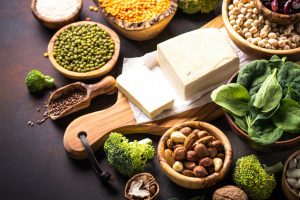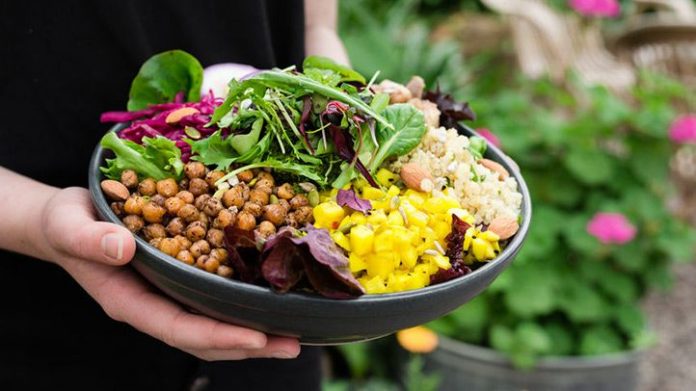Many foods are based on plant proteins like lentils, chickpeas, tofu, potatoes, and various other vegetables are a great source of protein. Plant-based protein is easily available, and they are good for health. In the following article, we get to know about Plant based protein? So please don’t skip the article from anywhere and read it carefully because it will be very useful for all of you guys.
Plant-based protein is an excellent source of vitamins, nutrients, minerals, and vitamins, for example, pulses, lentils, chickpeas, dry peas, pumpkin. Many people in the world are vegetarian, and they only eat fruit and vegetables and don’t like meat; that’s why they only want protein in the form of plant-based protein. It is available in the world in a wide range, and people use it according to their needs and achieve their goals—n seeds, flax seeds, etc.

Some of the Advantages of plant-based protein
Plant-based protein is useful in losing weight.
It is also prevented from many diseases.
Plant-based protein also prevents cardiovascular disease and lowers cholesterol levels.
Major plant-based protein sources
Pumpkin Seeds (plant-based protein)
Pumpkin seeds are replete with plant-based proteins.
Eighty-five pumpkin seeds consist of 126 calories, 5 grams fat, 5 grams fibre, 5 grams of protein, 1% calcium, 4% iron, and 18% magnesium.
Hemp Seeds (plant-based proteins)
It is an eatable seed and highly nutritious. These seeds are a great source of plant-based proteins and are essential for health
1 Oz of hemp seeds consists of 160 calories, 12.9 g fat, and 70 mg potassium. Hemp seeds also contain 1 g of fibre, 10.78 g protein, 2% calcium, and 4% iron.
Almonds (plant-based protein)
Almonds are also plant-based proteins, and it is good for health.
Twenty-five almonds consist of 168calories, 200-milligram potassium, and 3.5 g fibre. It also has 1 g of sugar, 6 g protein, and 7% calcium. It also consists of 6 % iron and 19% magnesium.
Pistachio (plant-based proteins)
This is also the source of plant-based proteins; this dry fruit is tasty and good for health.
Forty-nine kernels of pistachio have 159 calories, 13 grams of fat, and 291-milligram potassium. It also has 2.9 grams of fibre, 2.2 grams of sugar, and 6% protein. Pistachio nuts also contain 2% vitamin A, 3% calcium, and 2% vitamin C, 6% iron, 25% vitamin B-6, and 8% magnesium.
Flax seeds (plant-based proteins)
Flax seeds are also known as linseed; it helps lower cholesterol levels and weight loss.
One Oz of flax seeds consists of 151 calories, 11.95 grams fat, 230-milligram potassium, 7.7 grams fibre, .44 g of sugar, 5.19 g of protein, 7% calcium, and 9% iron. Flax seeds are small plant-based proteins foods.
Green peas (plant-based proteins)
Green peas are a great source of plant-based proteins. One cup of green peas consists of 118 calories, 354 mg potassium, and 21 grams of total carbs—also 7 grams of fibre, 8 grams of sugar, and 8 grams of protein—additionally, 22% vitamin A and 3% calcium.
Peas also have 96% vitamin C, 11% iron, 10% vitamin B-6, and 12% magnesium. Peas are another vegetable protein.
Also read: how to remove pimple marks naturally at home

